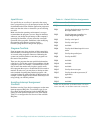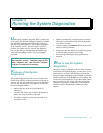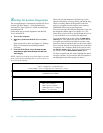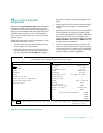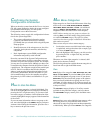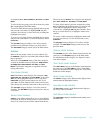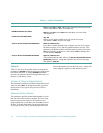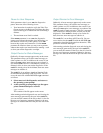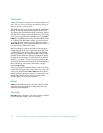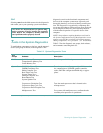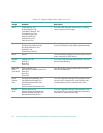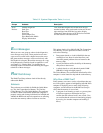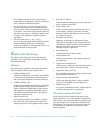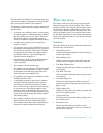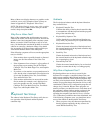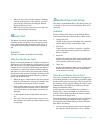
5-8 Dell PowerEdge 4100/180 and 4100/200 Systems Installation and Troubleshooting Guide
Test Limits
NOTE: The diagnostics program sets default limits on all
tests. The only reason to change the default would be to
limit the amount of testing done.
The RAM Test Group, the Video Test Group, the Diskette
Drives Test Group, the Hard-Disk Drives (Non-SCSI)
Test Group, the Serial/Infrared Ports Test Group, the Par-
allel Ports Test Group, and the SCSI Devices Test Group
allow you to designate limits. Whether you select
TEST
LIMITS
for a highlighted test group (from the Main menu)
or a subtest (from the Subtest menu), you set the limits
for all the subtests in that test group. When you select
TEST LIMITS
, a new screen appears and the Key Help area
lists keys to use with the new screen.
How you change a value for the limits of a test group or
subtest depends on the type of parameter associated with
it. Different keys are used to change values for different
types of parameters. For example, memory address limits
specified for the RAM Test Group are changed by typing
in numbers over the digits of a given limit or by pressing
the plus (+) or minus (–) keys to increase or decrease the
given limit. In contrast, to set limits for the Serial/Infrared
Ports Test Group, you use the <
SPACEBAR
> to toggle
between
YES
and
NO
.
After you are satisfied with the limits, return to the main
screen of the diagnostics by pressing the <
ESC
> key. The
values you selected under
TEST LIMITS
remain in effect
during all the test groups or subtests you run, unless you
change them. However, the values are reset to their
defaults when you restart the diagnostics.
About
ABOUT
in the Main menu lists all of the subtests for the
selected test group and displays information about the
subtest that is highlighted.
Key-Help
KEY-HELP
always displays a list of key controls available
for the particular category you have selected.



